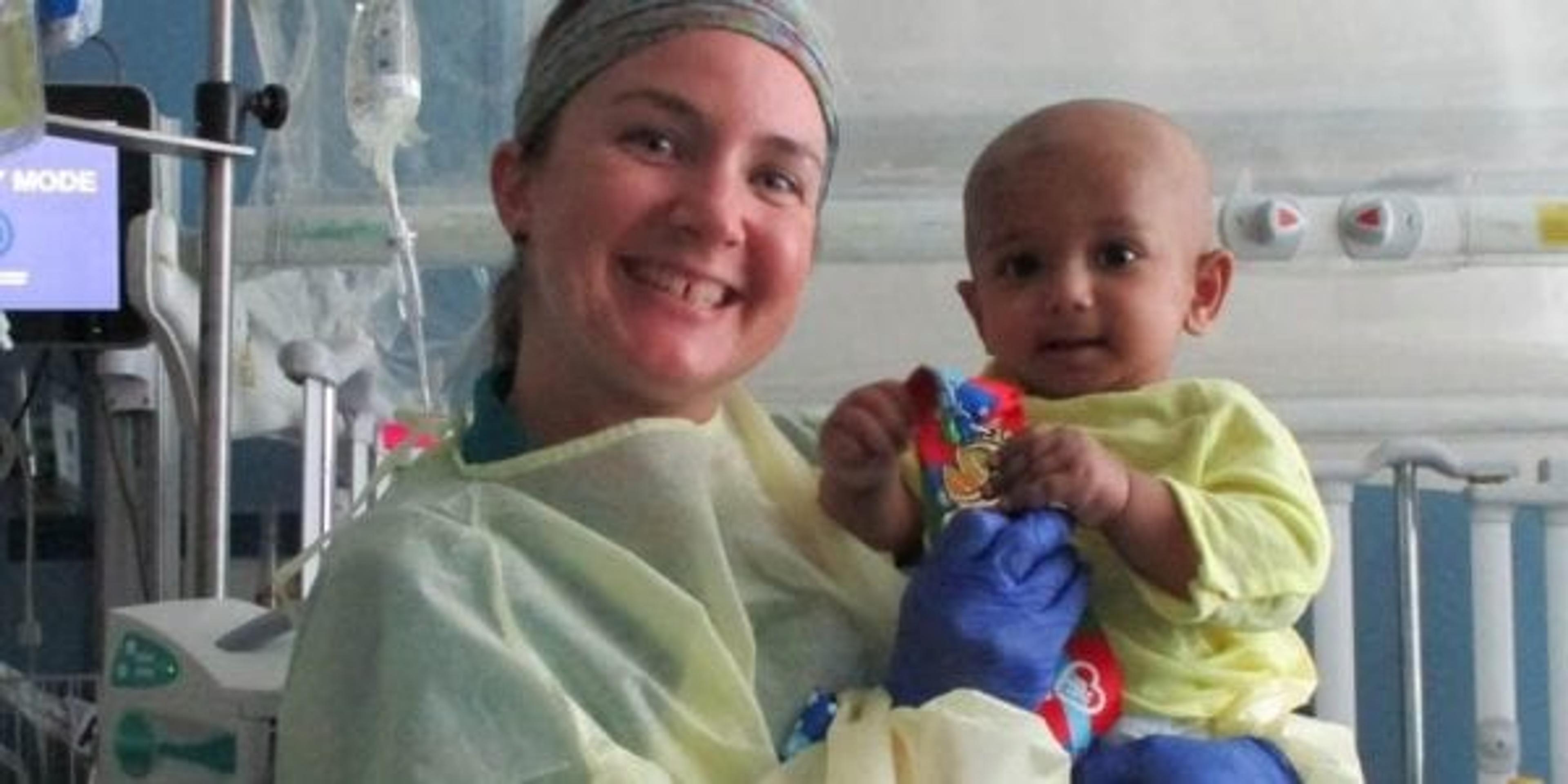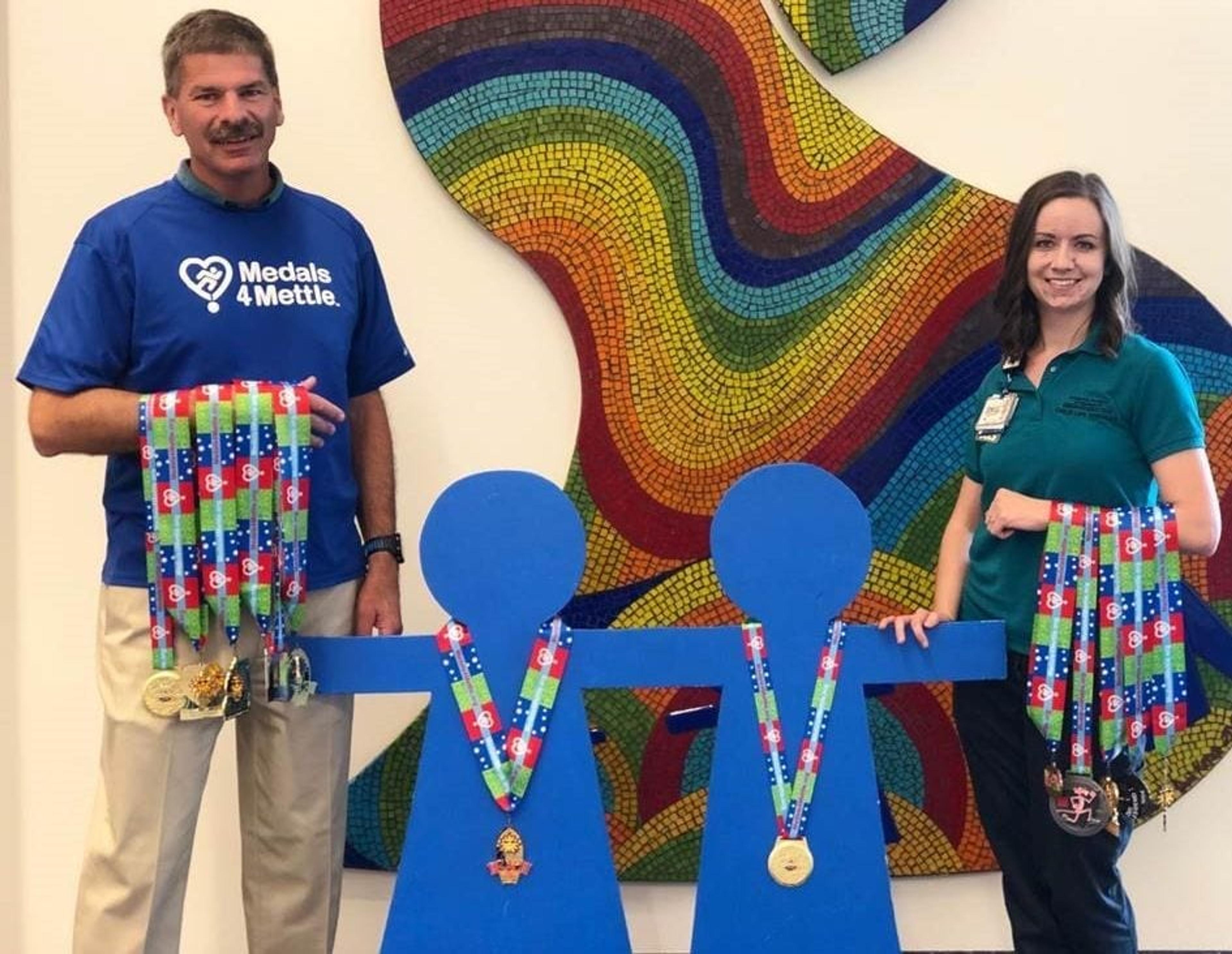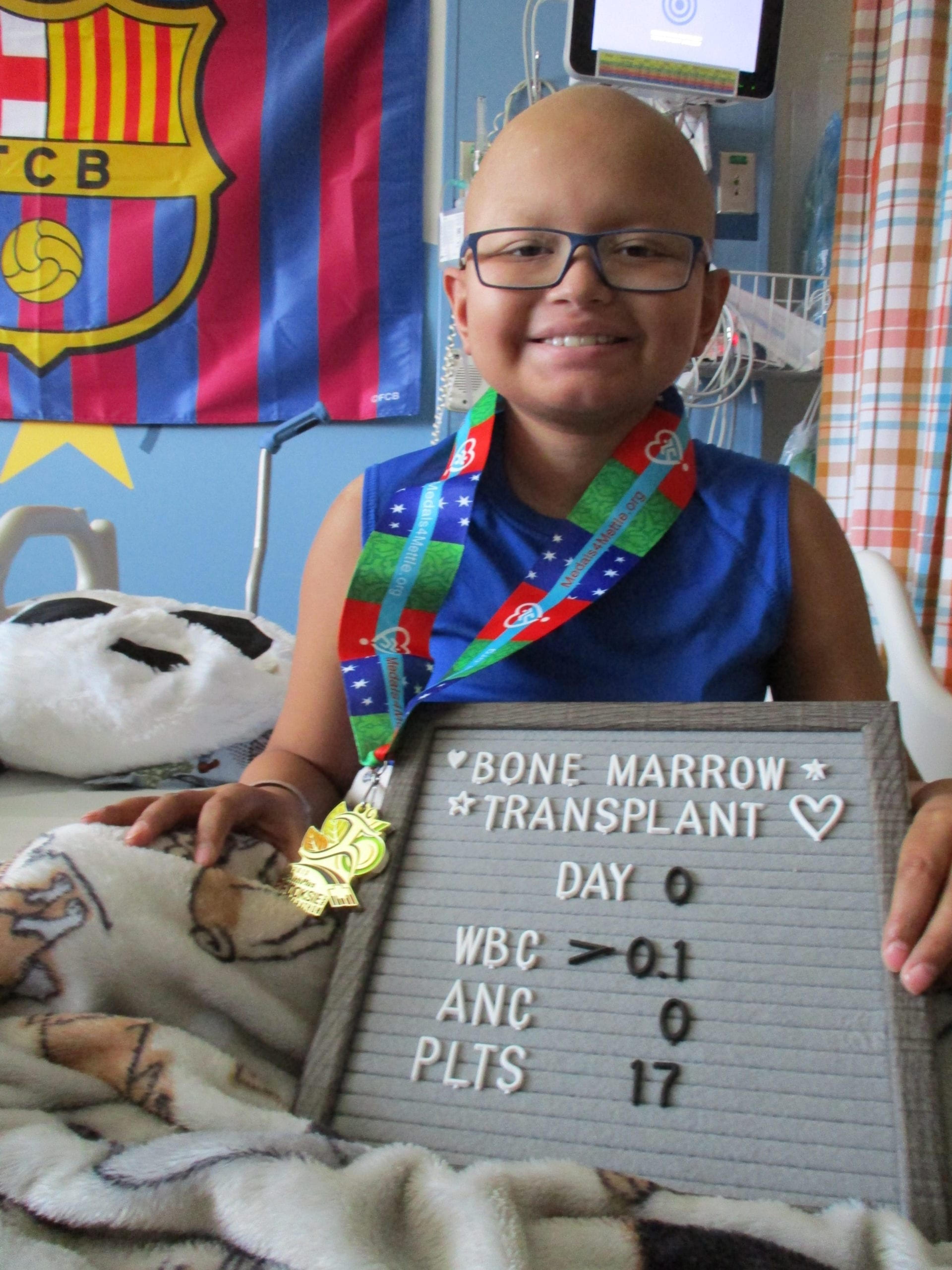Medals4Mettle: Rewarding Life’s Hardest Races

Jillian Berndtson
| 4 min read

“Someone is in a race much tougher than you right now.”
Dr. Steven Isenberg had just finished a marathon and claimed his medal at the finish line before visiting his friend in the hospital who was battling cancer. As the two talked, he realized that his friend’s eyes were particularly drawn to the medal. When Dr. Isenberg realized what his friend was looking at, he removed the medal from his neck and placed it around his friend’s, honoring the fact that his friend deserved a medal for his battles more than he did.

Joe Burns (left) and Sinéad Nimmo (right) hold medals to be given to kids in the hospital.
Dr. Isenberg’s simple exchange with a friend led to the creation of an international non-profit organization which aims to improve the healing journey of kids who are in the hospital: Medals4Mettle.
Medals4Mettle collects old earned medals from long-distance runs such as half-marathons, marathons and triathlons. The medals are then polished, given a special Medals4Mettle ribbon and gifted to kids in the hospital who have reached a significant milestone in their healing journey and have shown their own mettle in the process.
Sinéad Nimmo, Child Life Project Specialist at Children’s Hospital of Michigan in Detroit, is one of the staff members who awards the kids with their medals.
“There’s a lot of work we do and a lot of patients that we work with to promote positive coping and assist them with their hospitalization, particularly if it’s long or if it’s a major medical event,” said Nimmo. “When we have resources available to us like Medals4Mettle to help recognize a huge, overarching accomplishment (being done with treatment or being discharged after a super long hospital stay), it’s so meaningful to the patient and to their family to have an opportunity for someone to concretely, physically with a medal, recognize the hard work that they’ve put in to get to where they are.”

A Medals4Mettle recipient smiling after receiving the medal.
Nimmo emphasized the differences in medical journeys for each patient. There is no set criteria for what earns or does not earn a medal, it’s solely based on the individual. “Big goals are awesome, but it’s also a great program to celebrate achieving those small milestones along the way…It’s super special when you get to see a patient’s reaction to receiving the medal. It comes with a certificate that specifically points out why they’re receiving it. It’s such a simple thing but it means a ton.”
Every patient reacts to their medal differently. “We see everything from a small little smile to big, giant laughter to tears because it’s a big deal when you have an accomplishment recognized,” said Nimmo. “It’s the look on that kiddo’s face when you explain to them ‘this is why I really think you deserve this medal, this is the hard work I think you did. This is the difference I see or I’m so excited you get to go home’ or whatever it is…the look on their faces are brilliant and amazing and it makes the whole program so worthwhile and you see the benefit of it right there in their face,” added Nimmo.
Medals4Mettle has given over 55,000 medals worldwide since 2005 with over 8,000 of those medals being delivered to hospitals in the Detroit area. The Southeastern Michigan Chapter has even started hosting an annual half marathon of its own, Back to the Beach at Stony Creek.
“A couple different departments have specific parties,” said Joe Burns, Southeastern Michigan Chapter Coordinator for Medals4Mettle. “I got invited to the Annual Princess and Superheroes Party in May, there’s also a party here in the hospital called Ticker Club and all the kids who have had heart surgeries or transplants are there. For those parties we have medals for everyone that has been a patient or is a patient and I also have things called sibling medals. Sibling medals don’t really meet the criteria of long-distance training. Pretty much everyone will get a medal that comes to a hospital-sponsored event.”
“It’s like a finish line to a finish line,” said Burns. “The runner comes to the finish line and gets their goal which is the medal and then their medal goes to the hospital. Those kids are running a race from their bed and their goal is to get to their finish line, which is going home.”
If you would like to donate a long-distance medal to Medals4Mettle, you can visit their website.
You may also like:
• Soccer, Community and Competing for a Cause
• Make Time to Volunteer All Year Long
• Helping Kids Cope with a Sports-related Injury
• Soccer, Community and Competing for a Cause
• Make Time to Volunteer All Year Long
• Helping Kids Cope with a Sports-related Injury
Courtesy photos





